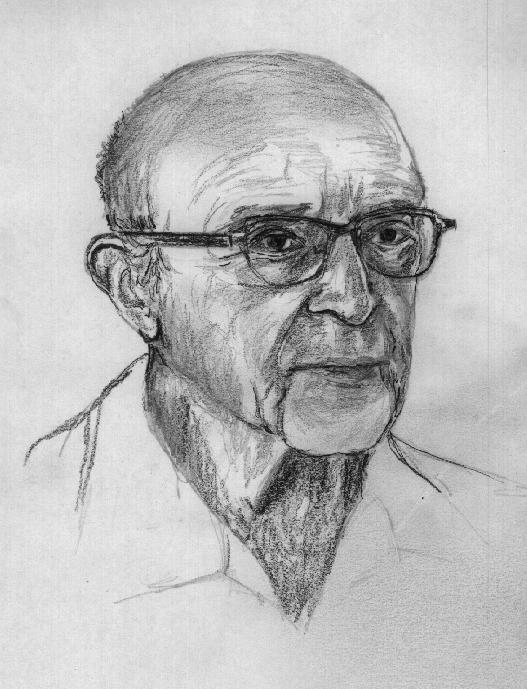Carl Rogers, Person-Centered Approach and Holistic Therapy
Important and useful information about Person-Centered Approach, Carl Rogers, his method of therapy based on empathy and the link between Carl Rogers, Person-Centered Approach and holistic therapy.
3 min read

Before we begin this in-depth article, if you prefer to listen to a summary podcast of it,
you can do so here.


Person-Centered Approach (Focused on Being or Individual)
The Person-Centered Approach is a therapeutic approach created by Carl Rogers, which focuses on empathy and unconditional acceptance of the individual. The therapist focuses on the individual's emotions, values, and needs.
This method aims to help those being accompanied to become aware, understand, and express their thoughts, emotions, and behaviors to improve their quality of life.
This approach can be integrated into many types of therapies, including Gestalt therapy, NLP, behavioral therapy, hypnosis, or even life coaching. It can also be used in a holistic therapy approach, by a holistic therapist who takes into account the physical, emotional, mental, and spiritual aspects of the individual.
This is the basic tool in the holistic training offered by Frédéric...
To use the Person-Centered Approach effectively, it is necessary to follow a training in which you will understand the therapist's right attitude, the link with empathy, the therapist's authenticity, the techniques of reformulation and questioning, and much more.
This method is a very useful solution for those in career transition as the lessons that individuals learn through this method can be useful in many sectors of activity.
Communication and interpersonal relationships are the basis of our personal and professional lives. A training that teaches this method can include courses on communication, conflict resolution, emotions, values, and needs of individuals, couples therapy, family therapy, and specific methods for conducting coaching or therapy sessions.
The Person-Centered Approach, thanks to a specific type of communication, allows individuals to understand the factors that influence their lives. The accompaniment process encourages individuals to explore and become aware of their thoughts, beliefs, emotions, and behaviors so they can change them if they wish.
In summary, the Person-Centered Approach is a therapeutic approach that can be used as the basis of a holistic therapy.
Many therapists who have followed Frédéric's training are masseuses, reflexologists, coaches, energy workers, or others, and they now use the Person-Centered Approach in their accompaniment.
If you want to use the Person-Centered Approach in your accompaniments, Frédéric's holistic training can teach you this empathy-based method that provides valuable well-being to individuals who benefit from it.
If you want to learn more about the type of training you can follow to become Life Coach and/or Holistic Therapist (as well as Consultant, NLP Practitioner, and many other ways to practice these professions...) :
Definitions from Wikipedia
Person-Centered Approach (ACP) is a method of psychotherapy and helping relationship (counseling) created by North American psychologist Carl Rogers (1902-1987).
The Person-Centered Approach belongs to the humanistic psychology movement, also called "third force" in the United States, alongside psychoanalysis and behaviorism (behavioral therapy).
Carl Rogers' ideas strongly influenced the field of human relationships and gave rise to Client-Centered Therapy. In 1987, the year of his death, he was even shortlisted for the Nobel Peace Prize for his facilitation interventions in South Africa, Ireland, Central America, and the former Soviet Union.
The Person-Centered Approach (ACP) is the term given by Carl Rogers to his therapeutic approach, a relatively general term that aims to signify that this approach, beyond the field of psychotherapy, finds many other applications, particularly in the fields of education, teaching, mediation, health, and social accompaniment. When it comes to psychotherapy, it is more about Client-Centered Psychotherapy or Person-Centered Psychotherapy.
Carl Rogers
Carl Ransom Rogers was born on January 8, 1902, in Oak Park, Illinois, and died on February 4, 1987, in La Jolla, California.
He is an American humanistic psychologist who primarily worked in clinical psychology, psychotherapy, counseling, mediation, and education. He is considered one of the founders of humanistic psychology. Rogers is widely regarded as one of the founding fathers of psychotherapy research and was honored for his pioneering research with the Distinguished Scientific Contribution Award from the American Psychological Association (APA) in 1956.
His method focuses on the quality of the relationship between the therapist and the patient (empathy, congruence, and unconditional positive regard). This approach was introduced in France under the name non-directive method in the 1950s, but Carl Rogers had already called it client-centered therapy ("Client-Centered Therapy") or person-centered approach ("Person-Centered Approach").
According to a survey conducted in 1982 among 422 American and Canadian psychologists, he was considered the most influential psychotherapist in history.
A study published in 2002 in the Review of General Psychology ranked Carl Rogers as the 6th most important psychologist of the 20th century.